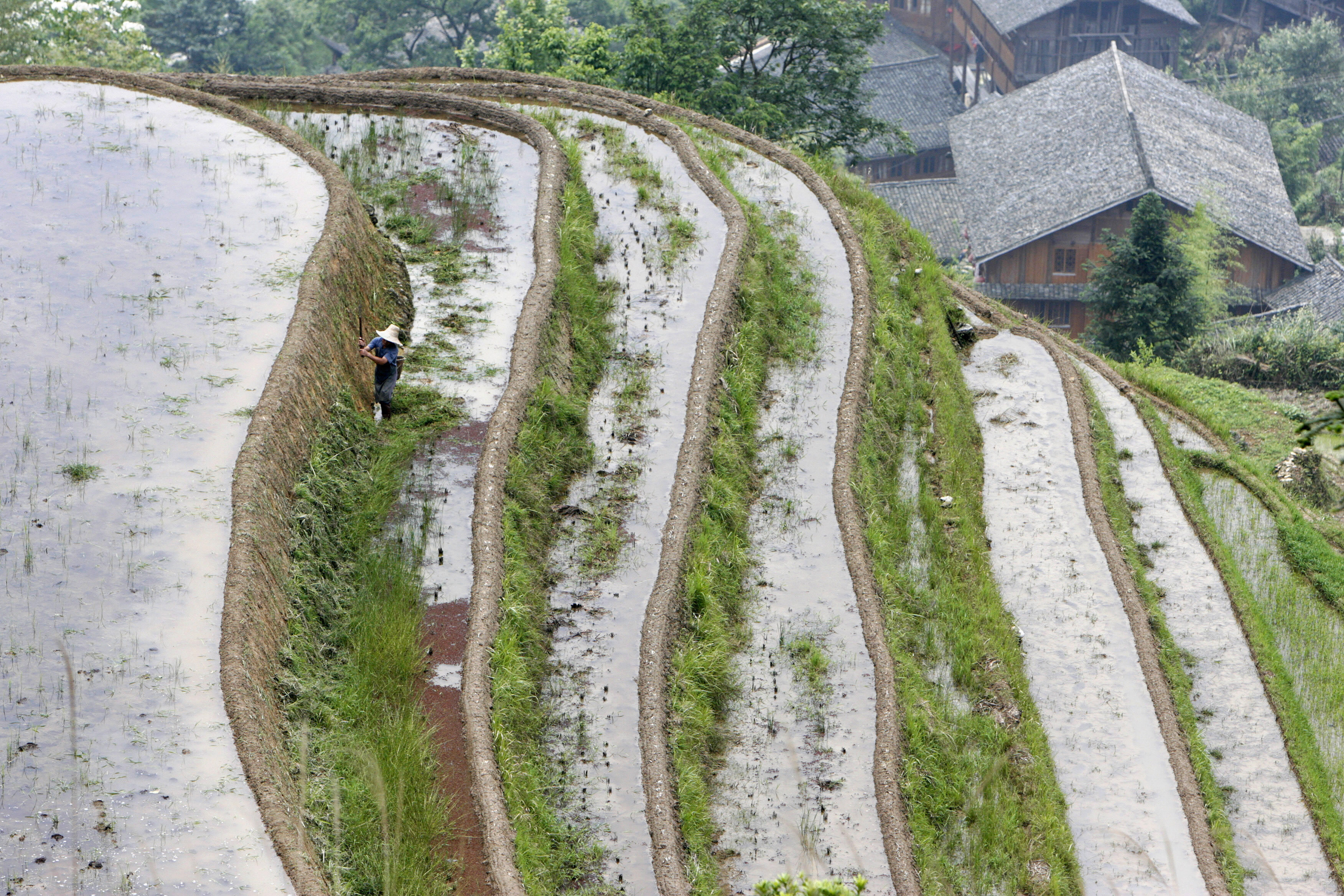Why a new trade deal must protect the land rights of indigenous people

Stay up to date:
Trade and Investment
This article is published in collaboration with Thomson Reuters Foundation trust.org.
A potential trade pact between the European Union and Guyana must contain land rights protections for local residents in order to avert the possible displacement of indigenous people, activists said on Tuesday.
Rising trade in timber stemming from such a deal could improve living standards in the South American country, according to a report released by activist groups the Forest Peoples Programme and the Amerindian Peoples Association.
But current rules governing consent for using land claimed by indigenous people are not strong enough to insure against territory being unfairly seized by logging companies or other investors, they said.
“The lack of national legal requirements to obtain free, prior and informed consent from communities regarding activities on all of our customary land is slowly strangling us,” said Sharon Atkinson, president of the Georgetown, Guyana-based Amerindian Peoples Association, in a statement.
Officials with the Guyana Forestry Commission, the government body in charge of managing public lands, did not immediately respond to interview requests.
More than half of the country’s territory is classified as state forests, the Commission said on its website, opening up the possibility of land conflicts.
Indigenous people often have lived and worked for generations on land officially owned by the state, under so-called customary tenure.
But if demand for land increases, due to rising forestry exports, they could lose their customary holdings as the state signs deals with big investors.
Activists say some state forests should be included in the customary property rights of indigenous people to protect against their possible displacement.
A trade deal between the European Union and Guyana could be signed as early as March, said Tom Griffiths, coordinator of responsible finance for the Forest Peoples Programme.
He said a draft of the agreement, offering access to the large European market, does not have adequate protections for land rights.
He said he could not provide figures on how many people could be displaced from their traditional lands under the deal.
Government forestry officials say Guyana has strong environmental management practices in place to make sure its citizens benefit from the country’s resources.
“To ensure we practice sustainable forest management, we have developed … a wealth of guidelines,” said James Singh, head of Guyana’s Forestry Commission, in a video posted on a government website.
Publication does not imply endorsement of views by the World Economic Forum.
To keep up with the Agenda subscribe to our weekly newsletter.
Author: Chris Arsenault covers global food security and agricultural politics for the Thomson Reuters Foundation.
Image: An aerial view of a forest. REUTERS/Finbarr O’Reilly/Files.
Don't miss any update on this topic
Create a free account and access your personalized content collection with our latest publications and analyses.
License and Republishing
World Economic Forum articles may be republished in accordance with the Creative Commons Attribution-NonCommercial-NoDerivatives 4.0 International Public License, and in accordance with our Terms of Use.
The views expressed in this article are those of the author alone and not the World Economic Forum.
Related topics:
Forum Stories newsletter
Bringing you weekly curated insights and analysis on the global issues that matter.
More on Nature and BiodiversitySee all
Pedro Gomez and Clemence Schmid
August 6, 2025
Tom Crowfoot
August 5, 2025
Hu Xiangdong and Felipe Carazo
August 1, 2025
Andrea Willige
July 30, 2025

